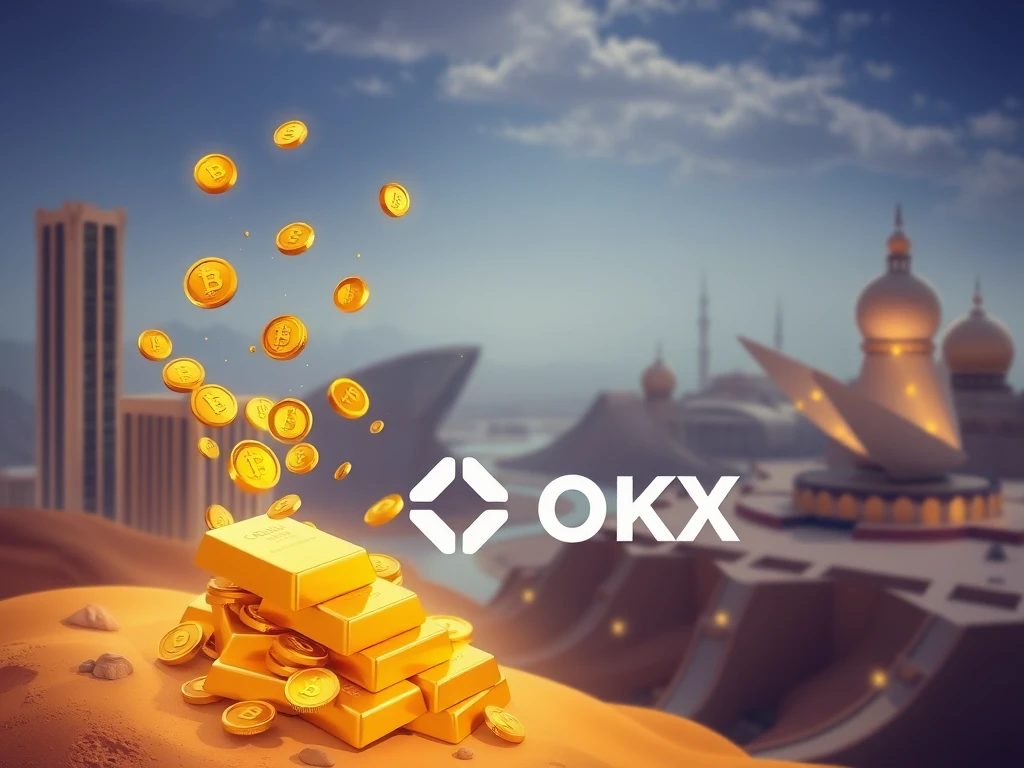Crucial Warning: OKX Executive Addresses RWA Tokenization Hype Amid UAE Boom

The world of finance is buzzing about RWA tokenization, the process of bringing real-world assets onto the blockchain. However, a key executive from major crypto exchange OKX is urging caution amidst the excitement. Rifad Mahasneh, CEO of OKX MENA (Middle East and North Africa), shared insights highlighting the critical need for genuine utility over mere hype in this rapidly growing sector.
Understanding RWA Tokenization and the Hype
RWA tokenization involves creating digital tokens on a blockchain that represent ownership or rights to tangible or intangible assets like real estate, art, commodities, or even carbon credits. This process promises increased liquidity, fractional ownership, and greater transparency.
Mahasneh acknowledges that hype can drive initial interest in Web3 projects, but he stressed during an interview at Token2049 in Dubai that sustainability depends on delivering tangible benefits. Projects must clearly demonstrate the value tokenization adds to a specific asset. If tokenization doesn’t provide real, everyday value, its long-term prospects may be limited, regardless of initial enthusiasm.
Real-World Assets Gaining Traction in the UAE
The Middle East, particularly the UAE, has become a hotbed for real-world assets tokenization initiatives. Several large-scale projects underscore this trend:
- A significant $3 billion agreement between MultiBank Group, MAG (a UAE real-estate firm), and blockchain provider Mavryk represents one of the largest RWA initiatives globally.
- The Dubai Land Department is piloting a real-estate tokenization project in collaboration with Dubai’s Virtual Assets Regulatory Authority (VARA).
- Mantra signed a $1 billion deal with Damac Group to tokenize assets, although this project later faced significant challenges with its token value.
These developments indicate strong institutional and governmental interest in leveraging blockchain for traditional assets within the UAE.
How UAE Crypto Regulation Supports Growth
Mahasneh points to the region’s clear regulatory environment as a key driver for institutional adoption of tokenization and broader UAE crypto engagement. Defined rulebooks from regulators provide clarity on how exchanges and other players operate, giving institutions confidence to enter the space.
A notable example is the UAE’s progress in stablecoin regulation. The Central Bank of the UAE approved a framework for dirham-backed stablecoins, clarifying issuance and supervision. This swift action, compared to regulatory debates in other markets, signals the UAE’s proactive approach to digital asset innovation. Central bank involvement further boosts institutional confidence in using regulated stablecoins.
The Importance of Stablecoin Regulation
The UAE’s stablecoin regulation is a significant step. It addresses concerns about the stability and legitimacy of digital currencies pegged to fiat. For investors and businesses, knowing that the stablecoin they use is regulated provides a crucial layer of trust and security. This framework has already encouraged major players like Tether and a consortium of Abu Dhabi entities (ADQ, First Abu Dhabi Bank, International Holding Company) to pursue issuing dirham-pegged stablecoins, pending regulatory approval.
Focusing on Value Beyond the Hype Cycle
While the potential for RWA tokenization is vast, the OKX executive’s warning serves as a necessary reminder. The industry must prioritize creating solutions that offer genuine utility and solve real-world problems, rather than getting carried away by speculative hype. The UAE’s supportive regulatory landscape provides a foundation, but the success of individual projects will ultimately depend on their ability to deliver tangible value through the tokenization of real-world assets.
Conclusion: Navigating the Future of Real-World Asset Tokenization
The RWA tokenization space is evolving rapidly, with significant momentum building in regions like the UAE. However, the message from OKX is clear: sustainability requires a focus on utility. As institutions and governments explore bringing real-world assets onto the blockchain, demonstrating clear, everyday value will be paramount to navigating the hype and building a robust, impactful future for tokenized assets.









